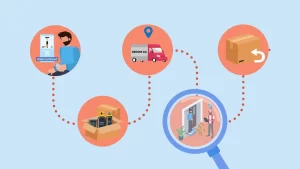What Does an NDIS Support Coordinator Do?
Understanding the complexities of the National Disability Insurance Scheme (NDIS) is not easy. People and families need guidance in making the right choice. This is where an NDIS support coordinator becomes extremely useful. They do a lot, yet many people do not fully understand what they do. In this post, we will dive into their duties and how they help participants achieve their goals.
Understanding the Role
An NDIS support coordinator supports participants in implementing their plans. They are most concerned with making sure the individuals who attend participate connect to services that will best meet their needs. By getting to know each participant and their individual goals, they assist with connecting them to the right resources and supports. Such a tailored strategy with a support coordinator in Melbourne encourages independence and improves quality of life.
Building a Network of Support
Among the coordinator’s most important roles is building a solid support network. They collaborate with participants to identify and engage appropriate service providers. That may involve seeing a therapist, a support worker, or even going to a community organisation. By making these links, coordinators ensure participants receive holistic support appropriate to their context.
Enhancing Communication Effectiveness
Communication is an important aspect of the NDIS process. Coordinators stand between participants (users) and service providers. They assist in clarifying expectations, addressing misunderstandings, and ensuring that all parties are aligned. This role avoids ambiguity and improves service delivery accuracy.
Emphasising Choice and Control
Giving participants the power to make informed choices is one of the core principles of NDIS. Support coordinators help clients understand their choices. They offer details about what is offered, the associated prices and possible results. This allows participants to choose and take charge of their plans.
Dealing with Complicated Circumstances
There can be moments when participants face challenges and need further help. Coordination is designed to deal with these exceptional cases. It provides problem-solving strategies and support in negotiating with providers when things go wrong. It is an expert in keeping participants supported when things go sideways.
Monitoring Progress
You must track your progress when you are working on personal goals. This typically involves regularly reviewing participant plans and evaluating service efficacy by coordinators. They make sure that supports are linked to changing needs and that they get pivoted as needed. This iterative process enables betterment to result in improved outcomes.
Giving Emotional Support
In addition to logistical duties, coordinators provide emotional assistance. They understand that the NDIS is an emotional roller coaster and offer reassurance. They foster an environment of trust and connection that allows participants to voice concerns by being heard and feeling safe.
Skill-Development Encouragement
A big part of the role of a coordinator is promoting skills development. They see potential for participants to develop new skills. Coordinators are providing workshops, training sessions and community activities, providing experiences that support self-growth and independence.
Accountability and Compliance
It’s very important to follow NDIS guidelines as they are. Coster helps participants learn about their responsibilities while ensuring compliance with plan standards. They also ensure accountability through recordkeeping, financial management, and report writing. This careful documentation adds to agility as it allows transparency and keeps plans in check.
Navigating Transitions
Life changes can affect a participant’s needs. Transitions include relocating one family member to a new place or service provider or even shifting towards a new life stage. That said, coordinators will help you with each one of these things. This support enables participants to adjust to the transition seamlessly and continue to engage with the support they need.
Conclusion
The impact of an NDIS support coordinator on participants’ lives is multifaceted. Whether through establishing support systems or encouraging self-sufficiency, their participation is invaluable. A better appreciation of what coordinators do for different people enables the most leverage from NDIS plans. That, along with their guidance, helps participants know that everyone has someone to turn to at the end of the day, making participants more likely to reach their goals and achieve a better quality of life.










Post Comment